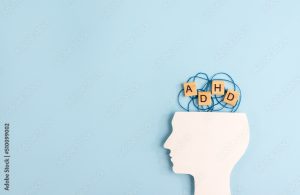Mental health conditions, ranging from depression and anxiety to bipolar disorder and schizophrenia, affect millions of people worldwide. Alongside therapy and lifestyle changes, medications play a pivotal role in the management of these conditions. This article aims to demystify mental health medications, offering insights into their types, how they work, and considerations for their use.
Types of Mental Health Medications
Mental health medications can be broadly categorized based on the conditions they treat. The most common types include:
1. Antidepressants
Used primarily to treat depression, anxiety disorders, and sometimes chronic pain, antidepressants work by altering the chemicals in the brain associated with mood and emotion. Examples include selective serotonin reuptake inhibitors (SSRIs) and tricyclic antidepressants (TCAs).
2. Anxiolytics
Anxiolytics, including benzodiazepines, are used to treat anxiety disorders and sometimes sleep disorders. They work by depressing the central nervous system, inducing a calming effect.
3. Mood Stabilizers
Mood stabilizers are primarily used to treat bipolar disorder, preventing extreme highs (mania) and lows (depression). Lithium and certain anticonvulsants fall into this category.
4. Antipsychotics
Antipsychotics are used to treat conditions like schizophrenia and bipolar disorder. They help manage symptoms like hallucinations and delusions. Examples include first-generation (typical) and second-generation (atypical) antipsychotics.
Understanding How They Work
Mental health medications work by influencing the brain’s chemical signals. The exact mechanism depends on the medication type and the condition being treated. For instance, SSRIs increase the level of serotonin in the brain, a neurotransmitter that affects mood, emotion, and sleep.
Considerations and Side Effects
While mental health medications can be life-changing for many, they come with potential side effects and considerations:
- Side Effects: These can range from mild, such as nausea or headaches, to more severe, such as weight gain or increased risk of diabetes. The severity and type of side effects vary widely between medication types and individuals.
- Adherence: Sticking to a prescribed medication regimen is crucial for its effectiveness. Non-adherence can lead to relapse or worsening symptoms.
- Monitoring: Regular monitoring by a healthcare professional is essential, especially when starting a new medication or adjusting dosages.
- Interactions: Mental health medications can interact with other medications, supplements, and even foods, altering their effectiveness or increasing side effects.
Making the Decision
The decision to start a mental health medication should be made in consultation with a healthcare provider, considering the potential benefits and risks. It’s also important to discuss any concerns or preferences, such as the desire for medications with fewer side effects or the consideration of pregnancy.
The Role of Therapy and Lifestyle Changes
Medications are often most effective when combined with therapy and positive lifestyle changes, such as regular exercise, a balanced diet, and stress management techniques. These complementary approaches can help address the root causes of mental health conditions and support overall well-being.
Conclusion
Mental health medications are a key component in the treatment of many psychiatric conditions, offering relief and improved quality of life for those affected. Understanding the types of medications, how they work, and their potential side effects can empower individuals to make informed decisions about their mental health care. Collaboration with healthcare professionals, adherence to prescribed treatments, and the integration of supportive therapies and lifestyle changes are essential for optimal outcomes.




